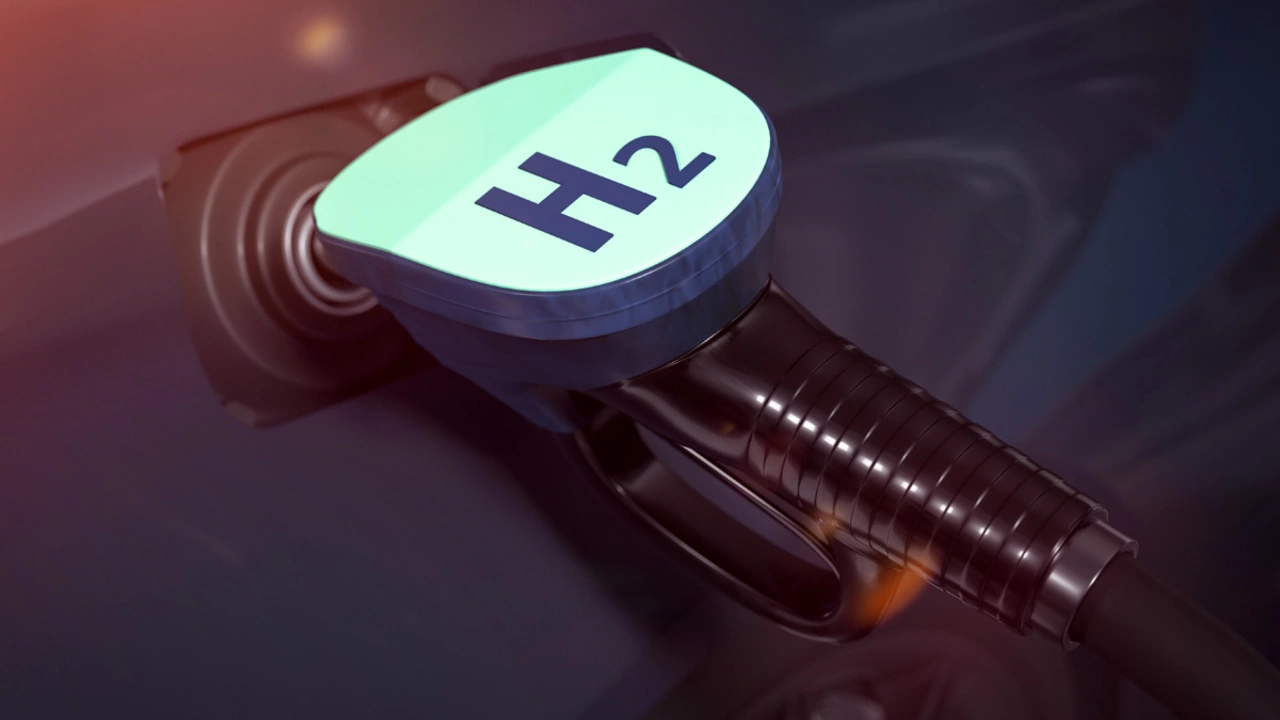Looking ahead, auto racing without gasoline promises a thrilling and environmentally-friendly future. As the world shifts towards renewable energy, races will likely see a surge in electric vehicles, which are already proving their mettle on the track. New technologies and engineering advancements will push the boundaries of speed and performance, while reducing our carbon footprint. We might miss the roar of a gas engine, but the squeal of tires and the thrill of speed will remain. It's a revolution in racing that I, for one, can't wait to see!
Alternative Fuels in Motorsport: What You Need to Know
If you love the roar of engines but worry about emissions, you’re not alone. Today’s racing world is testing new ways to keep the speed while cutting the carbon. From bio‑ethanol to hydrogen, teams are swapping traditional petrol for cleaner options. Let’s break down why it matters, which fuels are actually on the track, and how you can see the change next time you watch a race.
Why Alternative Fuels Matter in Racing
First off, racing has always been a test bed for new tech. When manufacturers develop a fuel that burns hotter or lighter, the benefits eventually trickle down to road cars. That means the greener the fuel on the circuit, the sooner everyday drivers see lower‑emission engines.
Second, fans and sponsors are demanding sustainability. Brands don’t want to be seen funding a sport that harms the planet. So, they look for teams that run on bio‑fuel, electric power, or even synthetic gasoline. The result is a shift in funding toward projects that prove alternative fuels can perform under extreme conditions.
Finally, regulations are tightening. Some racing series already set limits on CO₂ output, and future rules could require a certain percentage of renewable fuel. Teams that adapt now will have a competitive edge when the mandates hit.
Popular Alternatives on the Track
Bio‑ethanol and Bio‑diesel: These are made from plant matter and can be blended with conventional fuel. The World Endurance Championship has run cars on up to 30% bio‑ethanol, showing you can keep lap times low while reducing emissions.
Hybrid Power Units: Formula 1’s current hybrid systems combine a smaller turbo‑charged engine with an electric motor. The electric part recovers energy from braking, so the car burns less fuel overall.
Fully Electric: Series like Formula E and Extreme E run only on batteries. They prove that zero‑tailpipe races can still be exciting, with instant torque and quiet streets that let fans hear the tires instead of the engine.
Hydrogen Fuel Cells: Still early, but a handful of prototypes are hitting the track. Hydrogen produces only water vapor when it powers a fuel cell, offering a true zero‑carbon solution if the hydrogen itself comes from renewable sources.
Each of these alternatives has trade‑offs. Bio‑fuels need crops or waste, which can affect food supply. Hybrids still rely on fossil fuel engines. Batteries are heavy, and charging infrastructure is still growing. Hydrogen needs safe storage and a clean production method.So what does this mean for you as a fan? Look for race logos that display a leaf, a lightning bolt, or a hydrogen symbol – they usually indicate a green initiative. Many series now livestream data on fuel consumption, letting you see the exact reduction in CO₂ per lap.
Teams also involve fans in the transition. Some sponsors let you vote on which sustainable fuel to test next, turning the whole community into a lab. If you’re into painting liveries, consider designing a “green” scheme that highlights the car’s alternative fuel. It’s a fun way to show support and get your name mentioned on social media.
Bottom line: alternative fuels are no longer a niche experiment. They’re becoming the standard in top‑level motorsport, and the technology is moving fast enough that the next decade could see most races running on renewable energy. Stay tuned, keep an eye on the fuel badge, and enjoy the ride – greener, faster, and just as thrilling.
